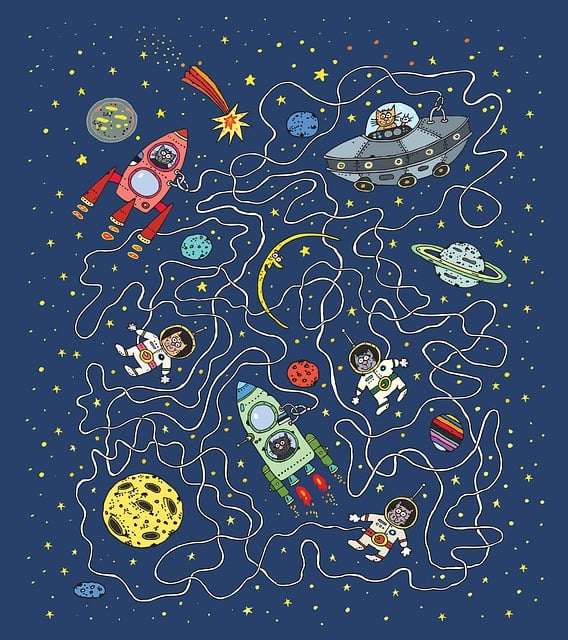In the UK healthcare sector, accurate medical case study translations are essential for effective communication and patient safety. Specialized translation services are needed to navigate complex medical jargon, cultural nuances, and regional language variations. Reputable providers with experienced medical translators ensure integrity and precision, adhering to strict quality standards and industry regulations like GDPR and CQC guidelines. Combining advanced technologies with human expertise, these services facilitate global knowledge exchange while maintaining the highest level of accuracy and confidentiality in UK medical case studies.
In the dynamic landscape of UK healthcare, ensuring accuracy in case study translations is paramount. This comprehensive guide delves into the intricacies of translating medical content, exploring challenges from complex terminology and cultural nuances to navigating stringent UK regulations. Discover how reputable translation services, qualified translators, and native-speaker oversight drive precision. We examine technology’s role, quality assurance processes, and compliance, culminating in inspiring case studies and glimpses into future trends for UK medical case study translations.
- Understanding the Importance of Accurate Medical Translations
- Challenges in Translating UK Healthcare Case Studies
- Selecting Reputable Translation Services for Medical Content
- Ensuring Quality: Standards and Qualifications for Translators
- The Role of Native Speakers in Preserving Contextual Nuance
- Technology's Impact on Medical Translation Accuracy
- Quality Assurance Processes for Case Study Translations
- Compliance with Healthcare Regulations in the UK
- Case Studies: Success Stories of Accurate Translations
- Future Trends in UK Medical Case Study Translations
Understanding the Importance of Accurate Medical Translations

In the realm of UK healthcare, where precision and clarity are paramount, ensuring accuracy in medical case study translations is no trivial task. Translation services play a pivotal role in facilitating effective communication across diverse linguistic and cultural barriers. When it comes to case studies, which often involve intricate medical jargon and complex patient narratives, the need for precise translations cannot be overstated. Accurate translations not only preserve the integrity of the original content but also ensure that healthcare professionals, researchers, and patients worldwide can access and understand critical information.
Case study translations must capture the nuances of medical terminology, cultural references, and regional variations in language to avoid misinterpretations or misdiagnoses. Inaccurate translations could lead to misunderstandings, potential risks for patient care, and even legal implications. Therefore, healthcare organizations should prioritize high-quality translation services that employ experienced medical translators who understand the ethical and clinical significance of their work. By doing so, they can ensure that case studies are not only translated but also localized to meet the specific needs and linguistic preferences of the UK healthcare community.
Challenges in Translating UK Healthcare Case Studies

Translating case studies in the UK healthcare sector presents several unique challenges. One of the primary difficulties is navigating the technical jargon and specialized terminology inherent in medical literature. Accurate translations demand a deep understanding of medical concepts, procedures, and regulatory language to ensure clear communication without losing critical nuances.
Additionally, cultural differences play a significant role in translation. What seems like a simple phrase in one language may have multiple interpretations or lack an exact equivalent in another. In healthcare, where context and nuance are paramount, these variations can lead to misunderstandings or miscommunications. Therefore, professional translation services specializing in UK medical case studies are essential to maintain accuracy and preserve the intended meaning.
Selecting Reputable Translation Services for Medical Content

When it comes to translating UK medical case studies, accuracy is paramount. Choosing a reputable translation service is key to ensuring that vital information is conveyed precisely and effectively. Look for providers with proven expertise in the medical field, who employ linguists with extensive knowledge of both the source and target languages. This specialized knowledge ensures that complex medical terminology is translated accurately, preserving the integrity of the case study’s content.
Reputable translation services for UK medical case studies should also adhere to strict quality assurance processes. These include thorough editing and proofreading, use of industry-standard translation memory tools to maintain consistency, and adherence to ethical practices like data security and confidentiality. Such measures safeguard not only the accuracy but also the privacy of sensitive healthcare information.
Ensuring Quality: Standards and Qualifications for Translators

Ensuring high-quality translations is paramount in the healthcare sector, especially when it comes to case studies that require precise and accurate documentation. For translation services catering to UK medical case studies, adhering to strict standards and qualifications is essential. Professional translators should possess not only expertise in language but also a deep understanding of medical terminology and concepts. They must be proficient in both source and target languages, demonstrating mastery through formal qualifications or recognized certifications.
Accredited translation agencies often employ linguists who have undergone rigorous training and assessments, ensuring they meet industry standards. These standards include consistency in translation, adherence to legal and ethical guidelines, and a keen eye for detail. By prioritizing qualified translators, healthcare organizations can rest assured that their case studies will be accurately translated, preserving the integrity of medical information exchanged within the UK healthcare system.
The Role of Native Speakers in Preserving Contextual Nuance

When it comes to translating UK medical case studies, ensuring accuracy is paramount. While technological advancements in machine translation have come a long way, they often struggle with capturing the subtle nuances and contextual subtleties inherent in medical language. This is where native speakers play a crucial role.
Native speakers who are also experts in the medical field bring an invaluable understanding of both the language and its specific terminology. They can discern between similar-sounding terms, interpret idiomatic expressions, and ensure that the translated case study accurately reflects the original intent and context. This level of expertise is essential for preserving the integrity of medical information, especially in sensitive areas like healthcare, where precision and clarity are non-negotiable.
Technology's Impact on Medical Translation Accuracy

In today’s digital era, technology has significantly transformed medical translation services for UK case studies. Advanced machine translation (MT) tools and artificial intelligence (AI) platforms now play a pivotal role in ensuring accuracy and efficiency. These technologies leverage vast databases of medical terminology and context to deliver more precise translations than ever before. For instance, neural machine translation models can capture nuances and complex structures in medical language, leading to improved quality.
However, it’s crucial to remember that while technology enhances accuracy, it doesn’t replace human expertise entirely. Professional medical translators still play a vital role in reviewing and refining MT outputs, ensuring cultural relevance, and maintaining the highest standards of translation for sensitive UK healthcare documents. This hybrid approach leverages both technological advancements and human insight to guarantee the accuracy and clarity of case study translations.
Quality Assurance Processes for Case Study Translations

Maintaining accuracy in translations of medical case studies is paramount, especially within the regulated healthcare sector in the UK. Translation services for UK Medical Case Studies must implement robust Quality Assurance (QA) processes to ensure linguistic and clinical precision. This typically involves multiple stages, including meticulous source text analysis, language proficiency checks by expert translators, and thorough proofreading against both grammatical correctness and medical terminology accuracy.
Advanced QA protocols may incorporate computer-assisted translation tools that help identify potential errors or inconsistencies. Peer review by a second translator is also common practice to catch subtle nuances missed during the initial translation process. Ultimately, the goal of these rigorous QA processes is to deliver translations that not only convey the meaning of the original case study but also preserve its scientific integrity and adhere strictly to UK healthcare regulations.
Compliance with Healthcare Regulations in the UK

The UK healthcare sector operates under stringent regulations, demanding precise and compliant documentation. When translating medical case studies, adhering to these standards is paramount. Translation services for UK medical case studies must not only capture the literal meaning but also respect the regulatory framework. Professional translators with expertise in healthcare terminology and an understanding of local laws are essential to ensure accuracy and avoid any potential legal or ethical pitfalls.
Compliance involves adhering to guidelines like the General Data Protection Regulation (GDPR) regarding patient data privacy, as well as industry-specific standards such as those set by the Care Quality Commission (CQC). Accurate translations must maintain confidentiality, preserve clinical nuances, and reflect the UK’s healthcare practices and protocols, ensuring that the translated document remains legally and clinically sound.
Case Studies: Success Stories of Accurate Translations

Case studies, with their detailed accounts of patient journeys and medical advancements, are invaluable resources in healthcare. When it comes to sharing knowledge and best practices across international borders, accurate translations of these case studies become essential. High-quality translation services play a pivotal role in ensuring that UK medical professionals can access and understand global insights effectively.
Successful translation projects within the UK healthcare sector often involve dedicated language experts who possess medical terminology expertise. These translators ensure precise renderings of complex medical concepts while maintaining the integrity of the original case study. By adhering to strict quality control measures, including peer review and fact-checking, translations can be trusted as reliable sources of information, facilitating effective collaboration and knowledge exchange in healthcare.
Future Trends in UK Medical Case Study Translations

The future of UK medical case study translations is poised for significant growth and evolution, driven by advancing technology and shifting healthcare landscape. Artificial Intelligence (AI) and machine translation tools are increasingly being integrated into translation services for UK medical case studies, promising improved efficiency and accuracy. These technologies can process vast amounts of data quickly, enabling faster turnaround times for critical translations in life-saving situations.
Additionally, there’s a growing emphasis on ensuring cultural nuances and clinical terminology are accurately conveyed in translated case studies. This calls for highly specialized translators with deep medical expertise and a strong grasp of both source and target languages. Advanced translation platforms that facilitate collaboration among these experts will likely become more prevalent, enhancing overall quality control and consistency in UK medical case study translations.
In ensuring accuracy in UK medical case study translations, a multi-faceted approach is essential. From recognizing the critical need for precise communication in healthcare to navigating regulatory compliance, every step matters. By selecting reputable translation services that prioritize quality and adhere to industry standards, along with leveraging native speakers and technology, we can achieve reliable and culturally sensitive translations that support improved patient care and research advancement. Translation services for UK medical case studies play a vital role in bridging language gaps, fostering better understanding, and ultimately enhancing the overall healthcare landscape.
